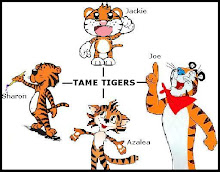chapter 2 How Experts Differ from Novices
I quoted this from page 19. It is talking about the differences between expert and novice:We consider several key principles of experts' knowledge and their potential implications for learning and instruction:
| 1. | Experts notice features and meaningful patterns of information that are not noticed by novices. |
| 2. | Experts have acquired a great deal of content knowledge that is organized in ways that reflect a deep understanding of their subject matter. |
| 3. | Experts' knowledge cannot be reduced to sets of isolated facts or propositions but, instead, reflects contexts of applicability: that is, the knowledge is ''conditionalized" on a set of circumstances. |
| 4. | Experts are able to flexibly retrieve important aspects of their knowledge with little attentional effort. |
| 5. | Though experts know their disciplines thoroughly, this does not guarantee that they are able to teach others. |
| 6. | Experts have varying levels of flexibility in their approach to new situations. |

It is also important to remember that terms such as 'expert' or 'novice' can be relative, ie. they depend on the person using them to determine how expert or novice a person is. (Joe)
ReplyDeleteThis comment has been removed by the author.
ReplyDeleteI'm interested to see the fifth one telling about the truth 'an expert sometimes could not be a good teacher'. I experience it before. One of my teacher during undergraduate time is very famous for his knowledge in education economics but his lessons are boring and half of students can easily fall sleep. ----Sharon
ReplyDeleteThis is because teachers are not those who know everything but people who are able to help others learn. Sometimes the best teachers we have are friends or family, teaching is not restricted to those who have the 'job' of teacher.
ReplyDeleteExpert can be a person which have 'relativly' high knowledge at the beginning compare with those novices. After expert widen other's idea by teaching him what he know, everybody in th egroup can work on it by their own, and let everyone be the expert!(Jackie)
ReplyDeleteI agree. Currently I'm reading Jay Cross's book about informal learning. He said that only 20% of the knowledge and skills are obtained through formal learning and others are gained by informal learning. So your teacher could be anyone and anything such as TV, computers, internet, etc. (Sharon)
ReplyDelete